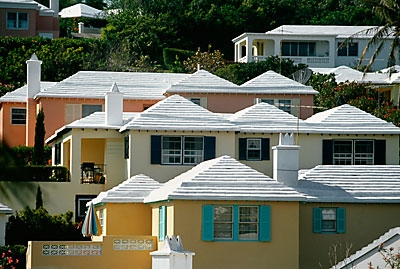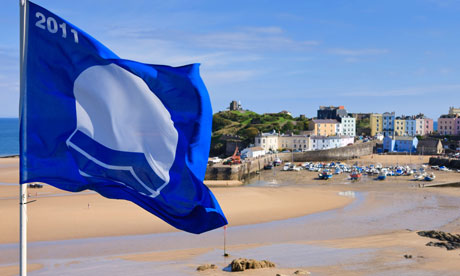News reports over the past few weeks involving raw sewage and tank water contamination have brought new focus on what are, sadly, not-so-new problems.
The practice of dumping raw sewage just a few hundred yards off Bermuda's pristine beaches has been in effect for generations. But for many people, both here in Bermuda and abroad, it was real news.
Are we really dumping raw sewage, in today's day and age, with all of the modern waste treatment options available to us?
Lumps, described as “greaseballs”, found on Grape Bay beach last week:
And with regard to tank contamination, are we really turning a blind eye to policing our water supply and ensuring its safety, even though we have laws in place that clearly state what should and must be done in order to protect ourselves - and our young children - from dangerous bacteria?
 Bermuda rainwater harvesting: When is the last time your tank was cleaned?These problems are not going to go away magically on their own. We need real, honest, open dialogue about what steps to take - baby steps and giant leaps alike. Running and hiding in our basements - especially when those basements are in the form of potentially contaminated water tanks - is not an option.
Bermuda rainwater harvesting: When is the last time your tank was cleaned?These problems are not going to go away magically on their own. We need real, honest, open dialogue about what steps to take - baby steps and giant leaps alike. Running and hiding in our basements - especially when those basements are in the form of potentially contaminated water tanks - is not an option.
Nor is hiding our heads in our pink Bermuda sand an option, especially when there are some strange and even disgusting things washing up onto that sand.
But let's also abandon phony political finger pointing. These problems are not OBA or PLP or UBP problems. They are Bermudian problems. They are human problems.
Yes, it is painful and embarrassing when news of our raw sewage being dumped within sight from shore is made public, especially if it's done as an alert to residents - aka: potential tourists - living in a nearby foreign country.
As Bermuda's economy, and in particular its tourist economy, struggles to regain its once stellar reputation and its much-needed prosperity, news of "greaseballs" washing ashore certainly doesn't help.
But there will be no tourist economy to speak of if we don't take action now to protect Bermuda's natural environment. More importantly, what sort of Bermuda will there be for ourselves ... and our children ... and their children ... if we don't do something now?
Bermuda is not alone in struggling with these problems. There are many other places in the world, including some Caribbean island nations, that are grappling with these same issues. Some are doing real work in these areas, while others are only pretending to be doing so.
 A Blue Flag - indicating cleanliness - flying at a beach in Wales. Let's look to the rest of the world and see how others are making real progress. What steps are they taking? Let's learn from the ones who are doing the right thing. And let's also avoid the practices of the pretenders.
A Blue Flag - indicating cleanliness - flying at a beach in Wales. Let's look to the rest of the world and see how others are making real progress. What steps are they taking? Let's learn from the ones who are doing the right thing. And let's also avoid the practices of the pretenders.
Then, let's show the rest of the world that we, too, are willing to do the right thing, and that we're willing to be honest. In the short term, it might mean that we need a system of flags on our beaches alerting bathers of potential water-borne contamination.
But in the longer term, a comprehensive solution is required.
And what other problems are out there now that haven't yet made the front page or haven't yet been the lead story on the nightly news? What other practices do we need to change in order to protect Bermuda's natural environment and ensure safety for Bermudian residents and visitors alike?
The sooner we bring these into the open, the sooner we'll find solutions. As painful and expensive as it might be, let's work together and do the right thing.
Related Local Media Coverage & Publications
- Security Message for U.S. Citizens: Contaminated Beaches - Consulate General of the United States, 15-Apr-2014
- Tag: Contaminated beaches warning - Bernews, April 2014
- Water Report 2013 - Bermuda Sun, May 2013
- Couple’s contaminated tank water fears - Royal Gazette, 15-Apr-2014
- No one has ever been prosecuted for failing to clean their water tank - Royal Gazette, 17-Apr-2014
- Greenrock: Let's Work Together & Do Right Thing - Bernews, 22-Apr-2014
- Greenrock on 'greaseballs': Tourism dies if we don't protect environment - Bermuda Sun, 23-Apr-2014
- Sewage reports 'painful and embarrassing' — Greenrock - Royal Gazette, 23-Apr-2014

